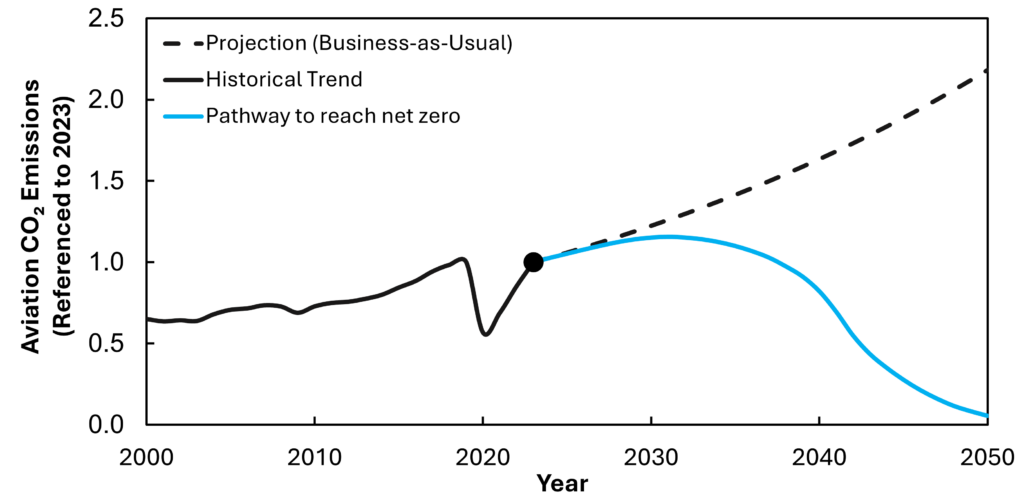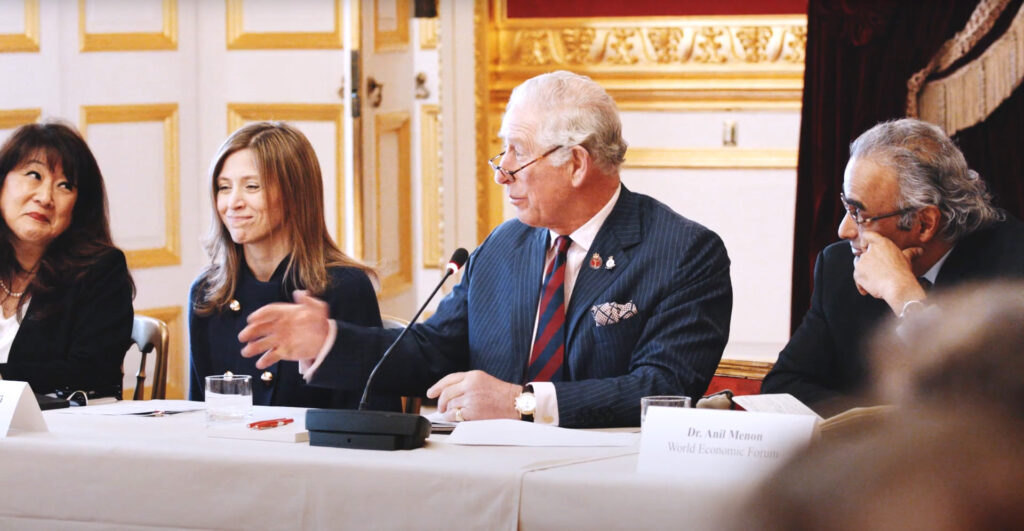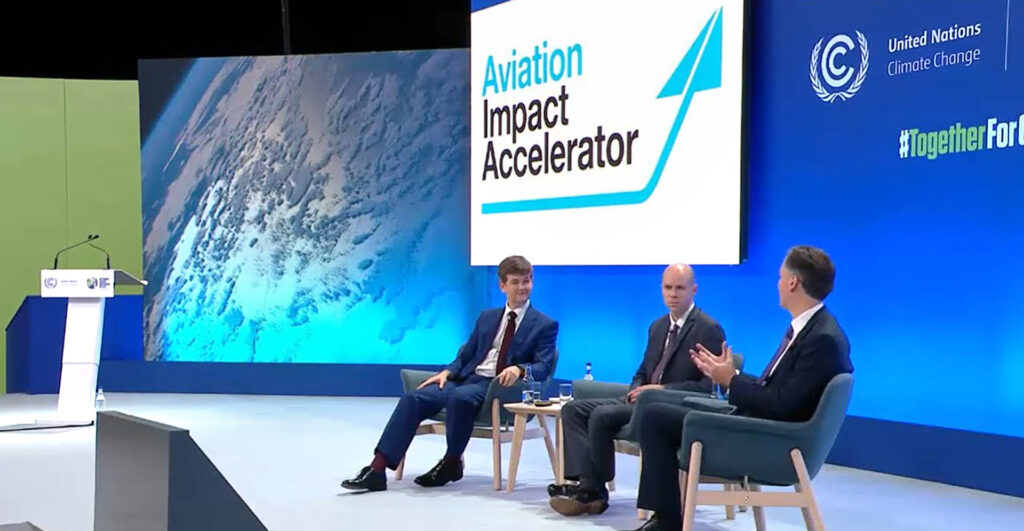ABOUT
The Aviation Impact Accelerator
A global initiative jointly led by the University of Cambridge’s Whittle Laboratory and Institute for Sustainability Leadership (CISL), bringing together experts from across the sector and beyond to accelerate the transition to climate-neutral aviation. Our mission is to develop evidence-based tools and insights to allow decision makers to map, understand and embark on the pathways towards sustainable flight.

The problem
The aviation sector has steadily grown over the decades, benefiting society beyond just the transport of people, goods and services. However, global aviation industry contributes 2-3% of annual CO2 emissions with the true climate impact being upto four times higher when non-CO2 emissions such as contrails are considered.
With the aviation sector growing at 5% annually and no radical intervention, the emissions from aviation are projected to double by 2050 – contributing to up to 25% of global emissions as other sectors decarbonise.
The sector is globally distributed, highly regulated and siloed. This presents numerous challenges that must be navigated to unlock sustainable aviation. Today, the uncertainty around technological solutions and the political and economic levers that drive innovation is immense.

Our work
The Aviation Impact Accelerator (AIA) was born out of a series of roundtables convened by His Majesty King Charles III, in early 2020, at the Whittle Laboratory and Clarence House. These roundtables, part of His Majesty’s Sustainable Markets Initiative, brought together aviation business leaders, policymakers and academics. The discussions highlighted the necessity for multi-disciplinary efforts to tackle the climate impact of aviation.

There is no silver bullet as aviation targets net zero. The AIA develops evidence-based tools that provide decision makers in Government, industry and civil society with the insight necessary to map, understand, and embark on the pathways towards sustainable aviation.
The AIA operates in a range of small, agile, cross-disciplinary teams looking at multiple aspects of the system including fuels, aircraft, propulsion technologies, airports, non-CO2 emissions, economics, and policy. The AIA has assembled a team of over 100 global experts from academia, industry and policy who actively contribute to the insights and tools produced by the group.
The AIA has developed the world’s leading holistic system models for mapping net-zero aviation pathways providing insight across the industry and influencing policy formation. The dynamic nature of AIA tools and the team’s inclusive facilitation approach allows stakeholders to test assumptions, understand the uncertainty and assess the system-wide effects of different levers.

Transforming the aviation sector into one that is sustainable and has no climate impact is one of society’s biggest challenges — particularly given the speed of change involved. Solving it requires a change across the board to new technologies, new business models and new policies. To do that we need to get people out of their silos and into a new way of working – linking rapid technology change into a whole sector approach to achieving sustainable aviation.
— Professor Rob Miller, Director Whittle Lab, University of Cambridge